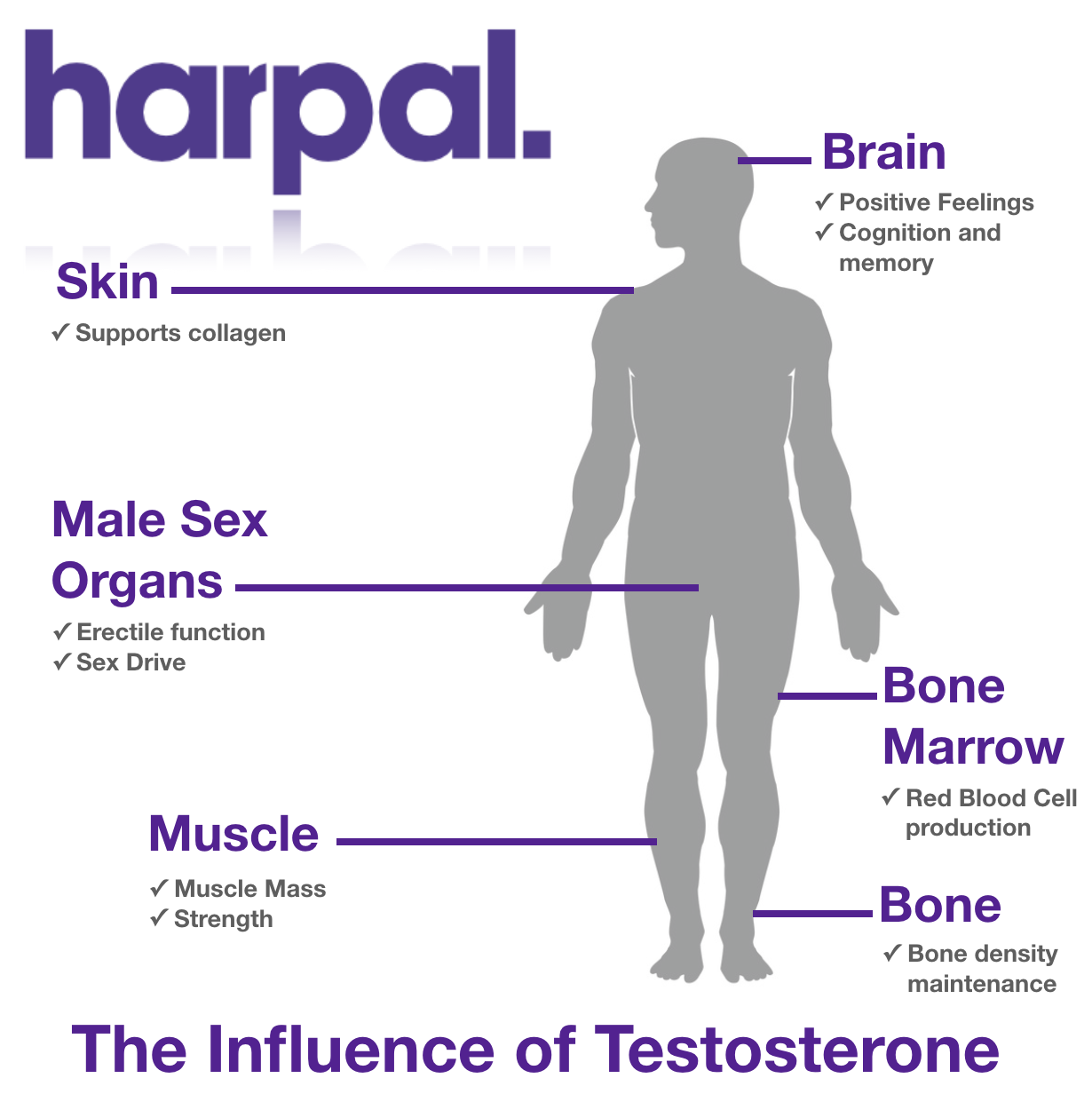Testosterone Replacement Therapy (TRT) – Everything You Need To Know


Most people associate Testosterone Replacement Therapy (TRT) with muscles and libido. And it’s true, TRT does play a big role in these areas. However, it can also be used to improve quality of life.
Testosterone is a very important hormone in both men and women and is responsible for many functions in the body. This includes bone mass, fat distribution and production of red blood cells. Below, we take a look at some of the most frequently asked questions about TRT.
TRT is a treatment offered for patients that are experiencing symptoms of low testosterone. TRT is the process of topping up low testosterone levels so that they are optimal for the individual patient. At Harpal Clinic you’ll complete an in-depth pre-consultation questionnaire, have an initial consultation with our doctor and a series of blood tests. If your testosterone levels are considered to be suboptimal you may be a good candidate for TRT.
Once you begin your bespoke treatment plan you’ll be monitored closely by our doctor to allow fine tuning of the hormone levels. This will ensure you continue to get maximum benefit from your treatment.
Testosterone levels naturally start to decrease with age – usually from the mid-30s onwards. The first signs of this are usually when a person begins to experience lowered libido and stops achieving the same results with their exercise routine. Testosterone is considered by many to be a male hormone but it also plays an important role in health for women, and so they may experience some of these symptoms too:
Low libido
Poorer quality of erection or inability to maintain erection (in men)
Disturbed sleep
Irritability
Feeling sluggish and tired
Low or depressed mood
Muscle tone and not getting the same results in the gym
Anxiety, difficult to cope
Changes to skin and hair
Fertility issues
If you suspect you may have low testosterone and would like to speak to one of our doctors to find out if TRT could help you, you can call us on 020 7096 5475 or book an appointment using our online form.
There are many benefits of TRT, including:
Lowered anxiety
Improved libido and sexual function
Better erection quality in men
More energy
Improved skin
Better fat distribution
Better muscle mass whilst reducing fat mass
Improved mood and calmer
Improved sleep
Stronger bones

You can read about some of the Lesser Known Benefits of TRT here.
If you are displaying the symptoms of low testosterone, the first step we would take is to look at your pre-consultation questionnaire. We would then combine this with an initial consultation and appropriate blood panel created in house so we get a better understanding of your symptoms. It may be that the cause of your symptoms is not what you expected. But, whatever the cause, we will correct it. In the initial consultation we can assess your symptoms, review your medical history and more.
Following on from this, we will usually recommend a series of blood tests tailored to you which can be carried out on site at the clinic. We use a very specific set of blood profiles which are exclusive to Harpal Clinic. We don’t just look at one or two areas, we go into far more depth than many other clinics and consider the whole body. This allows us to get to the root of the issue(s) and tailor bespoke treatment to you in order to correct the underlying cause.
TRT is a long-term investment in your health, and one of the great things about it is that many people will notice a difference within a few days. For others it can take a few weeks to start seeing results. In the long-term, you will see a cumulative effect in terms of wellbeing, results and how you feel.
There are many misconceptions about steroids and what they are, but a steroid is simply an organic compound with a particular chemical structure which exists and occurs naturally in the body. Whilst TRT does technically fall under the umbrella of ‘steroids’, so do many of the hormones naturally occurring in the body. Cortisol, oestrogen, and progesterone (DHEA) are just some of the hormones that contain steroids.
The testosterone we use for TRT is biologically identical to what we produce naturally in the body. TRT is a medical procedure carried out under the supervision of a doctor and is monitored carefully. It is used to top up the body’s testosterone level in low doses with the goal of achieving the level your body would naturally have. Everyone is different, but what is considered ‘normal’ ranges from 300 to 900 nanograms per deciliter (ng/dL). And, the devil is in the details – or more accurately, the dose.
Many people think of steroids and picture bodybuilders and athletes with rippling muscles. And some individuals do abuse steroid-based drugs like Metandienone and Trenbolone. These are synthetic – molecularly not identical to testosterone – and so when misused, can have long term implications.
As with any type of medication or medical treatment, there are potential risks and side effects. Before we begin any treatment we ensure our patients have done their own research and understand the potential risk factors of any suggested treatment.
TRT causes erythrocytosis, which is where your body produces more red blood cells – this is the same phenomenon that happens to people at high altitude. Higher doses of TRT can also cause a decrease in fertility. However, this generally increases again once treatment stops. If fertility is a concern for you, this can be managed during treatment.
Although testosterone is heavily associated with men, it can help women with low libido. It also contributes to skin quality, metabolic function, bone strength, muscle strength, mood and cognitive function.
How long do you need to be on TRT? This really depends on your age. In younger patients we can frequently treat the root cause of any issues which means they are likely to be on treatment for a shorter period of time. In older patients this may be longer, but this will be discussed in the initial assessment based on your symptoms, requirements and management of any other concurrent issues.
If you think you may be showing symptoms of testosterone deficiency and think testosterone replacement therapy may be for you, you can call our friendly team on 020 7096 5475, email us at help@harpalclinic.co.uk or book an appointment using our online form.